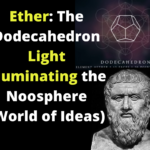All the effects witnessed in the experiments of public lecturers upon mesmerism, were produced by Regazzoni in perfection, and without one spoken word to indicate what the subject was to do. He even by his silent will produced the most surprising effects upon the physical systems of persons totally unknown to him. Directions whispered by the committee in Regazzoni’s ear were immediately obeyed by the subjects, whose ears were stuffed with cotton, and whose eyes were bandaged. Nay, in some cases it was not even necessary for them to express to the magnetizer what they desired, for their own mental requests were complied with with perfect fidelity.
Experiments of a similar character were made by Regazzoni in England, at a distance of three hundred paces from the subject brought to
Page 144
him. The jettatura, or evil eye, is nothing but the direction of this invisible fluid, charged with malicious will and hatred, from one person to another, and sent out with the intention of harming him. It may equally be employed for a good or evil purpose. In the former case it is magic; in the latter, sorcery. What is the WILL? Can “exact science” tell? What is the nature of that intelligent, intangible, and powerful something which reigns supreme over all inert matter? The great Universal Idea willed, and the cosmos sprang into existence. I will, and my limbs obey. I will, and, my thought traversing space, which does not exist for it, envelops the body of another individual who is not a part of myself, penetrates through his pores, and, superseding his own faculties, if they are weaker, forces him to a predetermined action. It acts like the fluid of a galvanic battery on the limbs of a corpse. The mysterious effects of attraction and repulsion are the unconscious agents of that will; fascination, such as we see exercised by some animals, by serpents over birds, for instance, is a conscious action of it, and the result of thought. Sealing-wax, glass, and amber, when rubbed, i.e., when the latent heat which exists in every substance is awakened, attract light bodies; they exercise unconsciously, will; for inorganic as well as organic matter possesses a particle of the divine essence in itself, however infinitesimally small it may be. And how could it be otherwise? Not with standing that in the progress of its evolution it may from beginning to end have passed through millions of various forms, it must ever retain its germ-point of that preexistent matter, which is the first manifestation and emanation of the Deity itself. What is then this inexplicable power of attraction but an atomical portion of that essence that scientists and kabalists equally recognize as the “principle of life” — the akasa? Granted that the attraction exercised by such bodies may be blind; but as we ascend higher the scale of the organic beings in nature, we find this principle of life developing attributes and faculties which become more determined and marked with every rung of the endless ladder. Man, the most perfect of organized beings on earth, in whom matter and spirit — i.e., will — are the most developed and powerful, is alone allowed to give a conscious impulse to that principle which emanates from him; and only he can impart to the magnetic fluid opposite and various impulses without limit as to the direction. “He wills,” says Du Potet, “and organized matter obeys. It has no poles.”
Dr. Brierre de Boismont, in his volume on Hallucinations, reviews a wonderful variety of visions, apparitions, and ecstasies, generally termed hallucinations. “We cannot deny,” he says, “that in certain diseases we see developed a great surexcitation of sensibility, which lends to the,
Page 145
senses a prodigious acuteness of perception. Thus, some individuals will perceive at considerable distances, others will announce the approach of persons who are really on their way, although those present can neither hear nor see them coming.
” A lucid patient, lying in his bed, announces the arrival of persons to see whom he must possess transmural vision, and this faculty is termed by Brierre de Boismont — hallucination. In our ignorance, we have hitherto innocently supposed that in order to be rightly termed a hallucination, a vision must be subjective. It must have an existence only in the delirious brain of the patient. But if the latter announces the visit of a person, miles away, and this person arrives at the very moment predicted by the seer, then his vision was no more subjective, but on the contrary perfectly objective, for he saw that person in the act of coming. And how could the patient see, through solid bodies and space, an object shut out from the reach of our mortal sight, if he had not exercised his spiritual eyes on that occasion? Coincidence?

Moe is the founder of GnosticWarrior.com. He is a father, husband, author, martial arts black belt, and an expert in Gnosticism, the occult, and esotericism.






